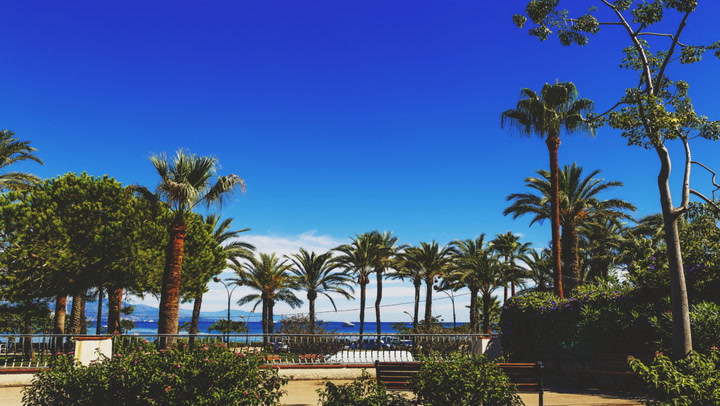1. Quiet Elegance of Juan-les-Pins
2. Historical Appeal of Antibes
3. Culinary Experiences and Local Life
4. The Vibrant Atmosphere of Juan-les-Pins
5. Scenic Beaches and Marine Culture
Unlike flashier spots such as Cannes and Hôtel du Cap-Eden-Roc, Juan-les-Pins is a quiet escape on the Côte d’Azur. Nearly a century ago, when F. Scott Fitzgerald and Zelda holed up on the French Riviera in seaside Villa St. Louis, Fitzgerald wrote a letter saying that Antibes was the “right place to rough it, an escape from the world.” Roughing it is a stretch — crowned by a 16th-century fort shielding the historic streets from the sea, Antibes is one of the few fortified medieval towns that sits directly on the Mediterranean (most of the Riviera’s eagle’s nest villages hover on hilltops high over the water).
:max_bytes(150000):strip_icc():format(webp)/TAL-header-beach-juan-les-pins-france-JUANLESPINS0623-dedf24071aa346ebb1cc2dad247a3b60.jpg)
Punctuated by pine tree–covered coves and coastal villas, the rocky peninsula forming Cap d’Antibes and Juan-les-Pins has attracted notable literary figures such as Jules Verne, as well as performers and artists like Jean Cocteau and Josephine Baker. She famously stayed with her pet cheetah at Fitzgerald’s former home-turned-hotel, the five-star Hôtel Belles Rives — one of the few spots on the Riviera that remains family-owned and operated. “Locals come here on the weekends because it feels as comfortable as going to visit family,” says fourth-generation owner Antoine Chauvin-Estène, whose heritage is intertwined with the hotel’s storied history.
:max_bytes(150000):strip_icc():format(webp)/TAL-belles-rives-hotel-guest-room-juan-les-pins-france-JUANLESPINS0623-3b93b927db284c86988cdb95f4072624.jpg)
While Cap d’Antibes and jet-set favorite Hôtel du Cap-Eden-Roc may be the star of Slim Aarons photos and annual galas, Juan-les-Pins offers a tranquil contrast, allowing visitors to escape from the crowds swarming swanky cities on the Riviera such as Cannes and Monaco. The region’s charm lies in its predictability: the provençal market unfolds without fail each morning, stalls overflowing with pyramids of soaps and spices, and everyone gathers for un café (espresso) at Le Ruban Bleu. Locals enjoy leisurely lunches on the patio of Le Bistrot du Curé, near the lighthouse, savoring regional favorites like pan bagnat (a Niçoise salad-stuffed sandwich) and pissaladière (an anchovy and olive-topped onion tart). Each afternoon, a woman in a swim cap sings while practicing her backstroke in the bay, all while water skiers zig-zag in front of the hotel’s pontoon.
:max_bytes(150000):strip_icc():format(webp)/TAL-lunch-belles-rives-hotel-juan-les-pins-france-JUANLESPINS0623-9a9d0c15f2c24095bc341b33be93db0e.jpg)
As the sun begins to set, men in suit jackets and women adorned in layers of linen relax in low-slung armchairs, sipping champagne and classic cocktails at the cigar lounge-inspired Bar Fitzgerald, which has undergone a major rejuvenation this season. Additionally, down the street, Hôtel Juana has modernized its 1930s façade, formerly a haven for jazz stars like Duke Ellington and painters like Picasso, creating a vibrant new outdoor terrace bar and restaurant called Paseo, which honors the hotel’s eclectic past through vintage-style, spritz-colored chairs and Chagall-inspired ceramics.
:max_bytes(150000):strip_icc():format(webp)/TAL-hotel-juana-juan-les-pins-france-JUANLESPINS0623-da171504af4547a18b61ff6df3aa2dba.jpg)
While living in Nice, we often avoided the nearby pebble-strewn beaches and took the train down to Juan-les-Pins, lounging under crochet parasols at La Petite Plage. This beach feels as much like an escape as French Polynesia – it is one of the few beaches on the Riviera showcasing Caribbean-like white sand. Despite the mega yachts docking in the distance, Juan-les-Pins maintains a protected charm, far removed from the glitz of Cannes.
:max_bytes(150000):strip_icc():format(webp)/TAL-le-ruban-bleu-juan-les-pins-france-JUANLESPINS0623-35e3816c507c41dd815d604175827521.jpg)
The fishermen from the 1930s may have moved on, but dozens of their traditional, handcrafted wooden boats, known as pointus, still bob gently in the Port de l’Olivette. This tiny harbor, extending off a crescent-shaped cove in Cap d’Antibes, serves as a reminder of the slow-paced lifestyle that the village has managed to maintain since the literary set first started summering here in the roaring ’20s. In the evenings, the nearby port lighthouse — perhaps the inspiration for the light on the dock in “The Great Gatsby” — continues to blink its green warning signal, while the soothing sounds of waves lapping against the sea wall below the balconies of Belles Rives provide a calming backdrop for drifting into sleep.




